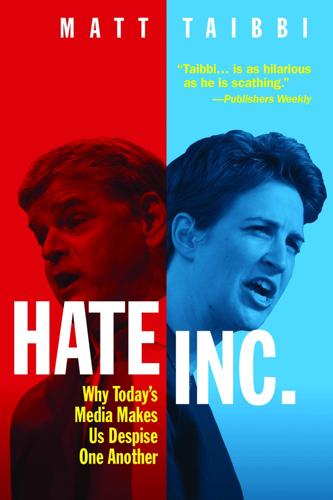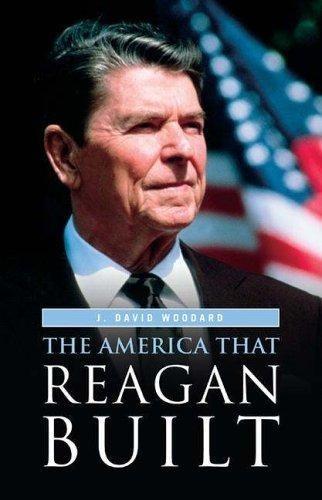Parents Music Resource Center
5 results back to index

pages: 334 words: 93,162
This Is Your Country on Drugs: The Secret History of Getting High in America by Ryan Grim
airport security, Alexander Shulgin, anti-communist, back-to-the-land, Burning Man, crack epidemic, double helix, Douglas Engelbart, Douglas Engelbart, East Village, failed state, Fillmore Auditorium, San Francisco, global supply chain, Haight Ashbury, illegal immigration, John Gilmore, John Markoff, Kickstarter, longitudinal study, mandatory minimum, new economy, New Urbanism, Parents Music Resource Center, PIHKAL and TIHKAL, RAND corporation, Ronald Reagan, Saturday Night Live, Steve Jobs, Tipper Gore, trade route, transatlantic slave trade, union organizing, Upton Sinclair, upwardly mobile, urban decay, women in the workforce
West Coast hip-hop was one, especially for nonurban youth sufficiently removed from the music’s lyrical concerns to find them seductively exotic. The Chronic, Los Angeles-area rapper Dr. Dre’s 1992 solo debut, announced its drug policy right on the CD: a symmetrical green pot leaf on a simple black background. Tipper Gore and the Parents Music Resource Center might have lamented the misogyny and violence threaded throughout the work of Dre’s old group, N.W.A., but the suburban and rural kids who helped make his solo effort a triple-platinum hit discovered something infinitely more interesting: the chronic itself. With a heavy influence from pothead George Clinton, the album glorified the gangsta lifestyle.
…
O’Neill, Paul Operation Condor Operation Intercept Operation Julie (Lee, Pratt) Operation Web Tryp opioids opium Opium Law Oregon Ortega, Daniel OTX Overholser, Geneva Owen, Frank OxyContin Paciello, Chris Page, Larry Palin, Sarah Panama Panic of 1837 Parenti, Christian parenting codependency movement and “hyper-parenting” and teenage drug use Parents Music Resource Center Parke-Davis Company Parry, Robert Partnership for a Drug-Free America (PDFA) patent-medicine industry Paulus, Martin Pelosi, Nancy “perceived availabiliy,” “perceived risk,” Percocet Peredo, Antonio Peredo, Coco Peredo, Inti Peron, Dennis Peru Pervitin Pesce, Mark Pew Internet Project pharmaceutical industry acceptance of prescription drugs Harrison Act methamphetamine production and morphine and Partnership for a Drug-Free America and Pure Food and Drug Act teenage drug use and prescription drugs Pharmaceutical Manufacturers Association “pharmies,” Phenethylamines I Have Known and Loved (PiHKAL) (Shulgin, Shulgin) phenyl-2-propanone (P2P) Philip Morris Phil Lesh & Friends Phish Pickard, William Leonard Pincus, Walter Plan Dignidad Plan Mexico Plato, Fernando Playpower (Neville) Polakoff, Moses police.A.R.E. and Politico Politics of Heroin in Southeast Asia, The (McCoy) Pratt, Colin pricing trends cocaine marijuana (in eighties) See also individual names of drugs “Probe Finds No CIA Link to L.A.

pages: 821 words: 227,742
I Want My MTV: The Uncensored Story of the Music Video Revolution by Craig Marks, Rob Tannenbaum
Adam Curtis, AOL-Time Warner, Bernie Sanders, Bob Geldof, Chuck Templeton: OpenTable:, crack epidemic, crowdsourcing, financial engineering, haute couture, Live Aid, Neil Armstrong, Parents Music Resource Center, pre–internet, Ronald Reagan, Saturday Night Live, sensible shoes, Skype, Steve Jobs, Steve Wozniak, Steven Levy, Tipper Gore, upwardly mobile
Steven Levy, writing in Rolling Stone, unfavorably compared “superficial, easy-to-swallow” acts such as Adam Ant to Bob Dylan. To bolster his accusation that “heavy-metal pounding” videos were dangerously violent, he quoted Dr. Thomas Radecki, chairman of the right-wing National Coalition on TV Violence, who a year later testified to Congress on behalf of the PMRC (Parents Music Resource Center) and served on their board of directors. (Radecki also routinely claimed that Dungeons & Dragons was “causing young men to kill themselves and others.” His reign at NCTV lasted until 1992, when his medical license was revoked for “engaging in immoral conduct” with a patient.) MTV, Levy wrote, “makes the musical energy and optimism of the Sixties seem a thousand light-years ago.”
…
On another occasion, Gore and her six year old saw Tom Petty’s “Don’t Come Around Here No More” video—some other parent, having gone through the “Hot for Teacher” incident, might have learned a lesson and banished MTV from the home—and the girl was “disturbed,” Gore said, “because the last scene showed [an actress] turning into a cake and being sliced up.” Gore and her friends formed the Parents Music Resource Center (PMRC), and for a few months they wrote articles and gave interviews denouncing what they called “porno rock.” In September 1985, Senator John Danforth, also married to a PMRC member, convened a congressional hearing to discuss the excesses of rock music in the age of cable TV. And that is how the Commerce Committee of the 99th Congress of the United States, like millions of other Americans, watched “Hot for Teacher” and Twisted Sister’s “We’re Not Going to Take It” when they should have been working.
…
Nykvist, Sven Oakey, Phil Oates, John Ober, Ken O’Brien, Conan Ocasek, Ric Ochs, Meegan Lee O’Connor, Sinead O’Hanlon, Ned Ohlmeyer, Don Oldham, Todd Olinsky, Frank Oliver, Julie Onassis, Jackie Kennedy Onyx Orbison, Roy Oreck, Sharon Ortega, Kenny Orzabal, Roland Osbourne, Ozzy Osmond, Donny Osmonds Ostin, Mo Outfield Ovitz, Mike Owens, Buck Paay, Patricia Page, Jimmy Paik, Nam June Palmer, Robert Pankhurst, Julie Parents Music Resource Center (PMRC) Park, Nick Parker, Bill Patitz, Tajan Patterson, Michael Patterson, Vince Paynter, Bob Pearcy, Stephen Pearl, Daniel Pearl Jam Pellington, Mark Pena, Raquel Penn, Sean Pepa Perenchio, Jerry Perkins, Stephen Perot, Ross Perry, Joe Perry, Steve Peters, Michael Peterson, Vicki Petty, Tom Pharcyde Phillips, Chynna Phillips, Julianne Phillips, Randy Pierson, Arthur Pilatus, Rob Pink Floyd Piscopo, Joe Pittman, Bob Plant, Robert Podbielniak, Nancy Poison Police Pon, Dale Pop, Iggy Pope, Bill Pope, Tim Porcaro, Steve Porizkova, Paulina Portman, Natalie Powell, Kevin Powell, Rickey Powell, Tony Presley, Elvis Pressburger, Emeric Pretenders Prince Prokofiev, Sergei Propaganda Public Enemy Pyke, Dr.

pages: 357 words: 99,456
Hate Inc.: Why Today’s Media Makes Us Despise One Another by Matt Taibbi
4chan, affirmative action, anti-communist, Berlin Wall, Bernie Sanders, Chelsea Manning, commoditize, crack epidemic, David Brooks, disinformation, Donald Trump, drone strike, failed state, fake news, Fall of the Berlin Wall, false flag, financial deregulation, Francis Fukuyama: the end of history, Glass-Steagall Act, Gordon Gekko, greed is good, green new deal, Howard Zinn, illegal immigration, immigration reform, interest rate swap, Julian Assange, Kickstarter, Marshall McLuhan, microdosing, moral panic, Nate Silver, no-fly zone, Parents Music Resource Center, Peter Thiel, pink-collar, Ponzi scheme, pre–internet, profit motive, quantitative easing, Ralph Nader, rent-seeking, rolodex, Ronald Reagan, Rubik’s Cube, Saturday Night Live, Seymour Hersh, Silicon Valley, social contagion, Stephen Hawking, Steve Bannon, Steven Pinker, Tipper Gore, traveling salesman, unpaid internship, WikiLeaks, working poor, Y2K
The “Dungeons and Dragons” terror of the early eighties was an example. Some of us are old enough to remember the absurd scare flick Mazes and Monsters, starring an early version of America’s most dependable moral-panic frontman, Tom Hanks. Often the panic came hand in hand with a ready legal solution. Tipper Gore’s “Parents Music Resource Center” freakout over heavy metal lyrics was an eighties re-hash of Mod-Rocker fear. The solution, thankfully, was tame: warning labels. The same craze today would likely result in a Heritage Foundation council working with iTunes to secretly remove morally threatening music. Reporters were always allowed tons of leeway when investigating moral panics.

The America That Reagan Built by J. David Woodard
"Hurricane Katrina" Superdome, affirmative action, Alan Greenspan, anti-communist, Ayatollah Khomeini, Berlin Wall, Black Monday: stock market crash in 1987, Boeing 747, Bonfire of the Vanities, business cycle, colonial rule, Columbine, corporate raider, cuban missile crisis, Deng Xiaoping, friendly fire, glass ceiling, global village, Gordon Gekko, gun show loophole, guns versus butter model, income inequality, invisible hand, It's morning again in America, Jeff Bezos, junk bonds, Korean Air Lines Flight 007, laissez-faire capitalism, late capitalism, Live Aid, Marc Andreessen, Michael Milken, Mikhail Gorbachev, mutually assured destruction, Neil Kinnock, Nelson Mandela, new economy, no-fly zone, Oklahoma City bombing, Parents Music Resource Center, postindustrial economy, Ralph Nader, Robert Bork, Ronald Reagan, Ronald Reagan: Tear down this wall, Rubik’s Cube, Savings and loan crisis, Silicon Valley, South China Sea, stem cell, Strategic Defense Initiative, Ted Kaczynski, The Predators' Ball, Timothy McVeigh, Tipper Gore, trickle-down economics, women in the workforce, Y2K, young professional
By the mid-1980s, African American artists dominated the Top Ten music list. Lionel Richie, Tina Turner, Rick James, Billy Ocean, and Stevie Wonder all had number one hits in 1984. The most flamboyant artist of the time was Prince Rogers Nelson, whose shocking lyrics on the album Dirty Mind (1980) led Tipper Gore to form the Parents Music Resource Center in 1984 to protest sexually explicit lyrics. That protest would eventually result in ‘‘Parental Advisory’’ labels on album covers. Prince’s flamboyant style led to questions about his personal life, especially if he was gay or bisexual. His response was classically postmodern: ‘‘Who cares?’’

pages: 913 words: 265,787
How the Mind Works by Steven Pinker
affirmative action, agricultural Revolution, Alfred Russel Wallace, Apple Newton, backpropagation, Buckminster Fuller, cognitive dissonance, Columbine, combinatorial explosion, complexity theory, computer age, computer vision, Computing Machinery and Intelligence, Daniel Kahneman / Amos Tversky, delayed gratification, disinformation, double helix, Dr. Strangelove, experimental subject, feminist movement, four colour theorem, Geoffrey Hinton, Gordon Gekko, Great Leap Forward, greed is good, Gregor Mendel, hedonic treadmill, Henri Poincaré, Herman Kahn, income per capita, information retrieval, invention of agriculture, invention of the wheel, Johannes Kepler, John von Neumann, lake wobegon effect, language acquisition, lateral thinking, Linda problem, Machine translation of "The spirit is willing, but the flesh is weak." to Russian and back, Mikhail Gorbachev, Murray Gell-Mann, mutually assured destruction, Necker cube, out of africa, Parents Music Resource Center, pattern recognition, phenotype, Plato's cave, plutocrats, random walk, Richard Feynman, Ronald Reagan, Rubik’s Cube, Saturday Night Live, scientific worldview, Search for Extraterrestrial Intelligence, sexual politics, social intelligence, Steven Pinker, Stuart Kauffman, tacit knowledge, theory of mind, Thorstein Veblen, Tipper Gore, Turing machine, urban decay, Yogi Berra
Murmuring that your lover’s looks, earning power, and IQ meet your minimal standards would probably kill the romantic mood, even though the statement is statistically true. The way to a person’s heart is to declare the opposite—that you’re in love because you can’t help it. Tipper Gore’s Parents’ Music Resource Center notwithstanding, the sneering, body-pierced, guitar-smashing rock musician is typically not singing about drugs, sex, or Satan. He is singing about love. He is courting a woman by calling attention to the irrationality, uncontrollability, and physiological costs of his desire. I want you so bad, it’s driving me mad, Can’t eat, can’t sleep, Heart beats like a big bass drum, You’re the only one, Don’t know why I love you like I do, You drive me crazy, Can’t stop lovin’ you, Ain’t nobody can do it to me the way you can, I like the way you walk, I like the way you talk, et cetera, et cetera.